South Korea to push for progress on free trade deal – to lock front row tickets into China’s consumer boom. Annual trade between the two has grown 19% on average since 1992.
Also, see
South Korea Inc. Joins Park on China Visit to Reshape Ties (Bloomberg, June 27, 2013)
President Park Geun Hye arrived in Beijing today with the biggest-ever business delegation to join a South Korean leader’s state visit, signaling the importance she puts on China in boosting her nation’s economic fortunes.
Park will be joined by 71 executives, including Hyundai Motor Co. Chairman Chung Mong Koo, as her nation turns to its biggest trading partner and the world’s second biggest economy to spur growth that fell in 2012 to the slowest pace since 2009.
The four-day visit is a chance for Park, elected to a single five-year term in December, to pin down a free-trade deal as conglomerates such as Hyundai and Samsung Group (005930) look to tap China’s growing consumer class. Expanding trade ties may be crucial for Park to deliver on promises to boost employment to 70 percent by 2017 from 64.2 percent. Bloomberg
– – –
Chinese president meets visiting S. Korean counterpart
Edited by Chen Zhi
Source – Xinhua, published June 27, 2013
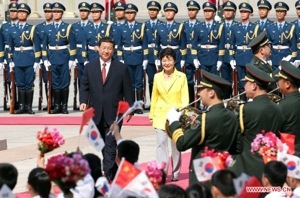
Chinese President Xi Jinping (L) holds a welcoming ceremony for visiting South Korean President Park Geun-hye before their talks at the Great Hall of the People in Beijing, capital of China, June 27, 2013. (Xinhua/Yao Dawei)
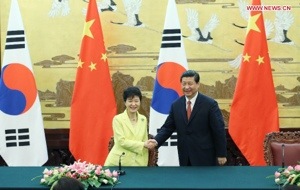
Chinese President Xi Jinping (R) shakes hands with South Korean President Park Geun-hye after their talks at the Great Hall of the People in Beijing, capital of China, June 27, 2013. (Xinhua/Yao Dawei)
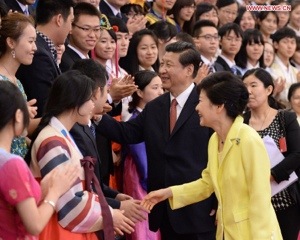
Chinese President Xi Jinping (C) and South Korean President Park Geun-hye (R, front) meet with youth delegates from both countries after their talks at the Great Hall of the People in Beijing, capital of China, June 27, 2013. (Xinhua/Ma Zhancheng)
Filed under: Beijing Consensus, Charm Offensive, Chinese Model, Communications, Culture, Government & Policy, Ideology, Influence, International Relations, New Leadership, Peaceful Development, Politics, Public Diplomacy, Soft Power, South Korea, Strategy, Tao Guang Yang Hui (韬光养晦), The Chinese Identity, The construction of Chinese and Non-Chinese identities, Xi Jinping, xinhua







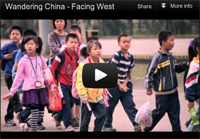

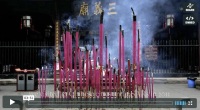



The Sharing Circle